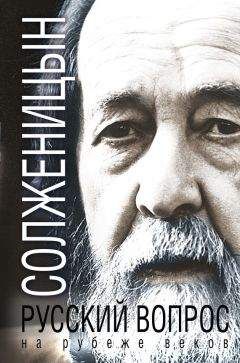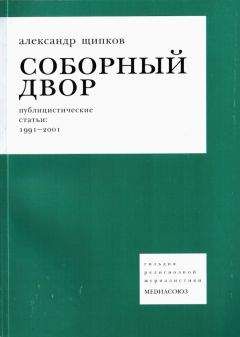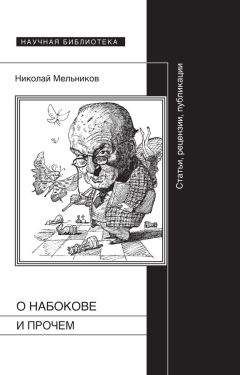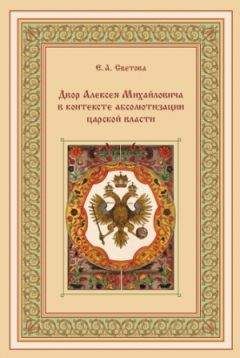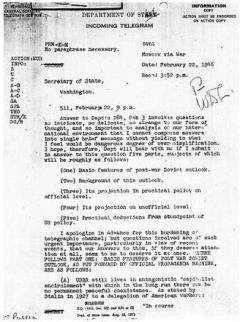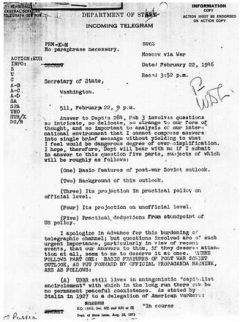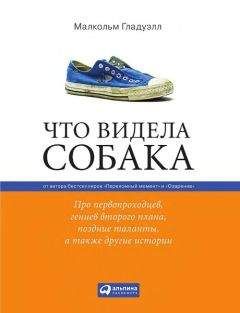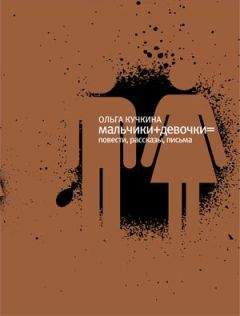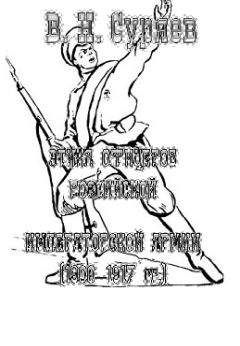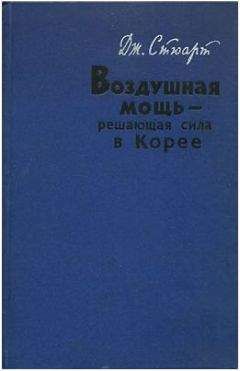Джордж Вашингтон - Конституция США
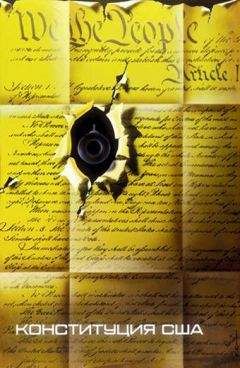
Скачивание начинается... Если скачивание не началось автоматически, пожалуйста нажмите на эту ссылку.
Жалоба
Напишите нам, и мы в срочном порядке примем меры.
Описание книги "Конституция США"
Описание и краткое содержание "Конституция США" читать бесплатно онлайн.
Конституция США – сравнительно краткий документ. В ней содержится приблизительно 7 тыс. слов. Она включает три компонента:
1) Преамбула, которая не признается судами и американской доктриной за составную часть закона, а рассматривается только с точки зрения источника, от которого она исходит, и целей, ради которых она выработана.
2) Семь статей, обозначенных римскими цифрами, занимающих иногда до нескольких страниц. Большинство статей делятся на разделы. Статьи главным образом определяют структуру органов государственной власти и регулируют их взаимоотношения, построенные на принципе сдержек и противовесов, т.е. распределяет компетенцию на федеральном уровне (статьи I–III), между союзом и штатами (статьи I и IV); устанавливают порядок изменения самого основного закона (статья V); содержат разноплановые положения в статье VI, часть из которых утратила силу (о признании США доконституционных долгов), а другие, наоборот, приобрели особое значение (нормы о соотношении внутреннего и международного права). Статья VII говорит о вступлении в силу самой конституции. Если характеризовать текст, содержащийся в статьях, то можно отметить, что он на первый взгляд кажется простым, логичным, сжатым и небольшим по объему, хотя при более внимательном рассмотрении в нем много нечеткого, неконкретного и противоречивого. Он изобилует общими выражениями, отсутствуют положения о важнейших институтах политической и государственной власти – о конституционном контроле, политических партиях, исполнительном аппарате, поверхностно характеризуется порядок избрания высших должностных лиц и органов, парламентская процедура.
3) 27 поправок, последняя из которых была принята в 1992 году. Поправки призваны пополнять содержащиеся в Конституции пробелы. Так, первые 10 поправок, носящие название Билль о правах, закрепляют свободу вероисповедания, свободу слова, печати, право обращения с петициями к правительству, право ношения оружия, неприкосновенность жилища и личности, право собственности, право на скорый и публичный суд, запрещение вторичного обвинения по одному и тому же делу и избирательное право. К настоящему времени некоторые поправки изменили положения предыдущих поправок, которые в свою очередь модифицировали первоначальный текст (например, последовательное преобразование и уточнение порядка избрания и замещения должностей президента и вице-президента, установленного в ст. II и поправках XII, XX и XXV). Все принятые поправки дописываются к основному тексту, а отмененный текст не устраняется, что затрудняет понимание.
Конституция США относится к жестким конституциям. Поправки к ней могут быть приняты 2/3 членов обеих палат высшего законодательного органа – Конгресса – либо специальным конвентом, созванным по инициативе 2/3 штатов (случаев такого созыва не было). Они подлежат ратификации (утверждению) законодательными собраниями 3/4 штатов либо 3/4 конвента штатов, созванных по решению федерального конгресса (ст. V).
Конституционный контроль осуществляется общими судами, а окончательное решение по федеральным актам принимает Верховный суд США, по актам штатов – обычно верховные суды штатов, но и в последнем случае по жалобе стороны (если эта жалоба пройдет необходимые судебные инстанции) верховный суд США может принять окончательное решение.
New Hampshire: John Langdon, Nicholas Gilman
Massachusetts: Nathaniel Gorham, Rufus King
Connecticut: Wm: Saml. Johnson, Roger Sherman
New York: Alexander Hamilton
New Jersey: Wil: Livingston, David Brearly, Wm. Paterson, Jona: Dayton
Pennsylvania: B. Franklin, Thomas Mifflin, Robt. Morris, Geo. Clymer, Thos. FitzSimons, Jared Ingersoll, James Wilson, Gouv Morris
Delaware: Geo: Read, Gunning Bedford jun, John Dickinson, Richard Bassett, Jaco: Broom
Maryland: James McHenry, Dan of St Thos. Jenifer, Danl Carroll
Virginia: John Blair, James Madison Jr.
North Carolina: Wm. Blount, Richd. Dobbs Spaight, Hu Williamson
South Carolina: J. Rutledge, Charles Cotesworth Pinckney, Charles Pinckney, Pierce Butler
Georgia: William Few, Abr Baldwin
The Amendments
Bill of Rights
Amendment I
Religion, Speech, Press, Assembly, Petition (1791)
Congress shall make no law respecting an establishment of religion, or prohibiting the free exercise thereof; or abridging the freedom of speech, or of the press; or the right of the people peaceably to assemble, and to petition the government for a redress of grievances.
Amendment II
Right to Bear Arms (1791)
A well regulated militia, being necessary to the security of a free state, the right of the people to keep and bear arms, shall not be infringed.
Amendment III
Quartering of Troops (1791)
No soldier shall, in time of peace be quartered in any house, without the consent of the owner, nor in time of war, but in a manner to be prescribed by law.
Amendment IV
Search and Seizure (1791)
The right of the people to be secure in their persons, houses, papers, and effects, against unreasonable searches and seizures, shall not be violated, and no warrants shall issue, but upon probable cause, supported by oath or affirmation, and particularly describing the place to be searched, and the persons or things to be seized.
Amendment V
Grand Jury, Double Jeopardy, Self-Incrimination, Due Process (1791)
No person shall be held to answer for a capital, or otherwise infamous crime, unless on a presentment or indictment of a grand jury, except in cases arising in the land or naval forces, or in the militia, when in actual service in time of war or public danger; nor shall any person be subject for the same offense to be twice put in jeopardy of life or limb; nor shall be compelled in any criminal case to be a witness against himself, nor be deprived of life, liberty, or property, without due process of law; nor shall private property be taken for public use, without just compensation.
Amendment VI
Criminal Prosecutions – Jury Trial, Right to Confront and to Counsel (1791)
In all criminal prosecutions, the accused shall enjoy the right to a speedy and public trial, by an impartial jury of the state and district wherein the crime shall have been committed, which district shall have been previously ascertained by law, and to be informed of the nature and cause of the accusation; to be confronted with the witnesses against him; to have compulsory process for obtaining witnesses in his favor, and to have the assistance of counsel for his defense.
Amendment VII
Common Law Suits – Jury Trial (1791)
In suits at common law, where the value in controversy shall exceed twenty dollars, the right of trial by jury shall be preserved, and no fact tried by a jury, shall be otherwise reexamined in any court of the United States, than according to the rules of the common law.
Amendment VIII
Excess Bail or Fines, Cruel and Unusual Punishment (1791)
Excessive bail shall not be required, nor excessive fines imposed, nor cruel and unusual punishments inflicted.
Amendment IX
Non-Enumerated Rights (1791)
The enumeration in the Constitution, of certain rights, shall not be construed to deny or disparage others retained by the people.
Amendment X
Rights Reserved to States (1791)
The powers not delegated to the United States by the Constitution, nor prohibited by it to the states, are reserved to the states respectively, or to the people.
Amendment XI
Suits Against a State (1795)
The judicial power of the United States shall not be construed to extend to any suit in law or equity, commenced or prosecuted against one of the United States by citizens of another state, or by citizens or subjects of any foreign state.
Amendment XII
Election of President and Vice-President (1804)
The electors shall meet in their respective states and vote by ballot for President and Vice-President, one of whom, at least, shall not be an inhabitant of the same state with themselves; they shall name in their ballots the person voted for as President, and in distinct ballots the person voted for as Vice-President, and they shall make distinct lists of all persons voted for as President, and of all persons voted for as Vice-President, and of the number of votes for each, which lists they shall sign and certify, and transmit sealed to the seat of the government of the United States, directed to the President of the Senate;-The President of the Senate shall, in the presence of the Senate and House of Representatives, open all the certificates and the votes shall then be counted;-the person having the greatest number of votes for President, shall be the President, if such number be a majority of the whole number of electors appointed; and if no person have such majority, then from the persons having the highest numbers not exceeding three on the list of those voted for as President, the House of Representatives shall choose immediately, by ballot, the President. But in choosing the President, the votes shall be taken by states, the representation from each state having one vote; a quorum for this purpose shall consist of a member or members from two-thirds of the states, and a majority of all the states shall be necessary to a choice. And if the House of Representatives shall not choose a President whenever the right of choice shall devolve upon them, before the fourth day of March next following, then the Vice-President shall act as President, as in the case of the death or other constitutional disability of the President. The person having the greatest number of votes as Vice-President, shall be the Vice-President, if such number be a majority of the whole number of electors appointed, and if no person have a majority, then from the two highest numbers on the list, the Senate shall choose the Vice-President; a quorum for the purpose shall consist of two-thirds of the whole number of Senators, and a majority of the whole number shall be necessary to a choice. But no person constitutionally ineligible to the office of President shall be eligible to that of Vice-President of the United States.
Amendment XIII
Abolition of Slavery (1865)
Section 1
Neither slavery nor involuntary servitude, except as a punishment for crime whereof the party shall have been duly convicted, shall exist within the United States, or any place subject to their jurisdiction.
Section 2
Congress shall have power to enforce this article by appropriate legislation.
Amendment XIV
Privileges and Immunities, Due Process, Equal Protection, Apportionment of Representatives, Civil War Disqualification and Debt (1868)
Section 1
All persons born or naturalized in the United States, and subject to the jurisdiction thereof, are citizens of the United States and of the state wherein they reside. No state shall make or enforce any law which shall abridge the privileges or immunities of citizens of the United States; nor shall any state deprive any person of life, liberty, or property, without due process of law; nor deny to any person within its jurisdiction the equal protection of the laws.
Section 2
Representatives shall be apportioned among the several states according to their respective numbers, counting the whole number of persons in each state, excluding Indians not taxed. But when the right to vote at any election for the choice of electors for President and Vice President of the United States, Representatives in Congress, the executive and judicial officers of a state, or the members of the legislature thereof, is denied to any of the male inhabitants of such state, being twenty-one years of age, and citizens of the United States, or in any way abridged, except for participation in rebellion, or other crime, the basis of representation therein shall be reduced in the proportion which the number of such male citizens shall bear to the whole number of male citizens twenty-one years of age in such state.
Section 3
No person shall be a Senator or Representative in Congress, or elector of President and Vice President, or hold any office, civil or military, under the United States, or under any state, who, having previously taken an oath, as a member of Congress, or as an officer of the United States, or as a member of any state legislature, or as an executive or judicial officer of any state, to support the Constitution of the United States, shall have engaged in insurrection or rebellion against the same, or given aid or comfort to the enemies thereof. But Congress may by a vote of two-thirds of each House, remove such disability.
Section 4
The validity of the public debt of the United States, authorized by law, including debts incurred for payment of pensions and bounties for services in suppressing insurrection or rebellion, shall not be questioned. But neither the United States nor any state shall assume or pay any debt or obligation incurred in aid of insurrection or rebellion against the United States, or any claim for the loss or emancipation of any slave; but all such debts, obligations and claims shall be held illegal and void.
Section 5
The Congress shall have power to enforce, by appropriate legislation, the provisions of this article.
Amendment XV
Rights Not to Be Denied on Account of Race (1870)
Section 1
The right of citizens of the United States to vote shall not be denied or abridged by the United States or by any state on account of race, color, or previous condition of servitude.
Section 2
The Congress shall have power to enforce this article by appropriate legislation.
Amendment XVI
Income Tax (1913)
The Congress shall have power to lay and collect taxes on incomes, from whatever source derived, without apportionment among the several states, and without regard to any census or enumeration.
Amendment XVII
Election of Senators (1913)
The Senate of the United States shall be composed of two Senators from each state, elected by the people thereof, for six years; and each Senator shall have one vote. The electors in each state shall have the qualifications requisite for electors of the most numerous branch of the state legislatures.
When vacancies happen in the representation of any state in the Senate, the executive authority of such state shall issue writs of election to fill such vacancies: Provided, that the legislature of any state may empower the executive thereof to make temporary appointments until the people fill the vacancies by election as the legislature may direct.
This amendment shall not be so construed as to affect the election or term of any Senator chosen before it becomes valid as part of the Constitution.
Amendment XVIII
Prohibition (1919)
Section 1
After one year from the ratification of this article the manufacture, sale, or transportation of intoxicating liquors within, the importation thereof into, or the exportation thereof from the United States and all territory subject to the jurisdiction thereof for beverage purposes is hereby prohibited.
Section 2
The Congress and the several states shall have concurrent power to enforce this article by appropriate legislation.
Section 3
This article shall be inoperative unless it shall have been ratified as an amendment to the Constitution by the legislatures of the several states, as provided in the Constitution, within seven years from the date of the submission hereof to the states by the Congress.
Amendment XIX
Women's Right to Vote (1920)
The right of citizens of the United States to vote shall not be denied or abridged by the United States or by any state on account of sex.
Congress shall have power to enforce this article by appropriate legislation.
Amendment XX
Presidential Term and Succession (1933)
Section 1
The terms of the President and Vice President shall end at noon on the 20th day of January, and the terms of Senators and Representatives at noon on the 3d day of January, of the years in which such terms would have ended if this article had not been ratified; and the terms of their successors shall then begin.
Section 2
The Congress shall assemble at least once in every year, and such meeting shall begin at noon on the 3d day of January, unless they shall by law appoint a different day.
Section 3
If, at the time fixed for the beginning of the term of the President, the President elect shall have died, the Vice President elect shall become President. If a President shall not have been chosen before the time fixed for the beginning of his term, or if the President elect shall have failed to qualify, then the Vice President elect shall act as President until a President shall have qualified; and the Congress may by law provide for the case wherein neither a President elect nor a Vice President elect shall have qualified, declaring who shall then act as President, or the manner in which one who is to act shall be selected, and such person shall act accordingly until a President or Vice President shall have qualified.
Section 4
The Congress may by law provide for the case of the death of any of the persons from whom the House of Representatives may choose a President whenever the right of choice shall have devolved upon them, and for the case of the death of any of the persons from whom the Senate may choose a Vice President whenever the right of choice shall have devolved upon them.
Section 5
Sections 1 and 2 shall take effect on the 15th day of October following the ratification of this article.
Section 6
This article shall be inoperative unless it shall have been ratified as an amendment to the Constitution by the legislatures of three-fourths of the several states within seven years from the date of its submission.
Подписывайтесь на наши страницы в социальных сетях.
Будьте в курсе последних книжных новинок, комментируйте, обсуждайте. Мы ждём Вас!
Похожие книги на "Конституция США"
Книги похожие на "Конституция США" читать онлайн или скачать бесплатно полные версии.
Мы рекомендуем Вам зарегистрироваться либо войти на сайт под своим именем.
Отзывы о "Джордж Вашингтон - Конституция США"
Отзывы читателей о книге "Конституция США", комментарии и мнения людей о произведении.





